The goal of, executive coaching, is the goal of good management: making the most of an organization’s human resources.” – Harvard Business Review Organizations that embrace the culture that their employees and leaders are their most valuable resources, invest in the development of these resources.
There are four commonly used tools for improving human performance:
- Coaching,
- Consulting,
- Training, and
- Therapy; and there are important differences between them.
Just as it is important to know when to hire a consultant; it is equally important to know the when and why for using a, Life coach.
Why hire a Life coach?
- You would like to improve Personal transformation
- To develop the future leaders in your organization
- Lead change to create high performing, results driven organizations
- Help managers learn how to be coaches to their employees
- Create an organizational culture that value learning, and continuous improvement.
When to Hire a Executive Coach for Executive Coaching
- You want to fine-tuning your vision for your business;
- You want to empower and motivate your staff;
- You want to improve the communication and listening skills of your managers and help them become more confident
- You want your leaders and managers to gain competence in the soft skills domain.
Benefits of Executive Coaching
Executives identified fifteen significant benefits of, executive coaching, as a leadership development tool. They are:
- Continuous one-on-one attention that facilitates growth
- Expanded thinking through dialogue and powerful questioning from a coach.
- Self-awareness – including bringing light to blind spots.
- Personal accountability for development – A coach can hold you accountable for work you promised to do between sessions.
- Just-in-time learning.
- Sustained interpersonal skills development.
- Consistent, long-term development that gets embedded and becomes part of your routine.
- Identify executive strengths and development needs
- Leverage existing strengths and improve performance
- Create an Executive Strategy with an Action Plan and accountability to help executives stay on track
- Adopt and/or reinforce executive leadership competencies crucial to the organization’s culture.
- Positive and sustainable behavior changes
- Develop leadership skills and practices; learn coaching skills they can implement.
- Enhanced career planning and development with an action-oriented plan
- Create greater work/life balance.
The Executive Coaching Process
Executives claimed expanded thinking through dialogue and powerful questioning from a coach. Dialogue, fueled through powerful questions, is at the heart of the, executive coaching, process. In coaching conversations, executives, think out loud, become more reflective and gain access to their own tacit knowledge and unexplored ideas. The coach’s role is to act as a sounding board, confidant, partner, challenger and catalyst for change.
Self-awareness, including the blind spots – Case Study
Jack has excellent technical skills and has fast-tracked to a senior executive position. He was certain he was a good leader — that is, until his coach asked him questions about his team’s excitement and engagement levels. It became clear to the coach that Jack’s team was frustrated.
Jack was furious and “insulted” and he vowed never to work with his coach again. Subsequently, Jack pondered his strong reaction. He realized his coach had hit a nerve. “That’s why I reacted like that, because it was true,” he says.
Jack is still working with his coach and continues to learn and develop. He appreciates his coach’s role in helping him gain self-awareness, which means understanding his strengths as well as his blind spots. “I don’t have these kinds of discussions with anybody else,” he says. “I am on such a straight path that I can’t see what’s going on.
That’s where, executive coaching, really helps me.” Jack now expects his coach to hit a nerve from time to time. He sums it up this way: “The value to me is not for a coach to be really nice to me. I don’t need another friend. The value to me is having somebody to help me see what I can’t see.”
Executive Coaching, acts as a mirror for Jack, providing him with honest feedback and revealing gaps so he can see himself more clearly, as well as help him to identify goals and promoting sustained action.
Personal Accountability for development
Some, executives, use sports metaphors to describe, executive coaching. Anne, a high Achiever, thinks of, executive coaching, as a springboard for reaching her personal best at work. “Olympic medalists have coaches,” she says.
“I want to be an Olympic medalist in, business.” Anne regards her coach as her “personal trainer.” The common denominator in, executive coaching, and personal training is accountability. You can learn proper techniques in a few training sessions at the gym, but it is easy to lose your way, by cutting corners, using improper techniques or missing workouts.
Ongoing personal training creates momentum and accountability for development. The same is true for, executive coaching. As Anne says, “Coaching provides an objective outside person to help you do assessments, set developmental plans and hold you accountable.”
Anne has invested heavily in her career, through education and hard work. She views coaching as another form of investment. She and her coach established developmental targets on day one. Now they have weekly meetings, either in person or on the telephone, to discuss her progress toward her targets and identify obstacles that are impeding her progress.
Through, executive coaching, Anne holds herself accountable for her continued success. Her bottom line: “Coaching gets me from where I am today to where I want to be”
The professional coaching model starts with a personalized plan.
Life coaching is Just-in-time learning
Executive coaching, facilitates what is called “just-in-time learning,” which is all about learning on the spot. Clients can practice and role play. Jack told his coach that he wanted to “take a stand” in his next meeting, and that he wanted to come across as confident, self-assured and assertive.
Coaching provided Jack with a dress rehearsal. He used the session to develop a strategy for the meeting. He knew that thinking on his feet in front of a group of people was not one of his strengths, so he and his coach brainstormed potential questions. Jack prepared his answers and did some role playing. The next day Jack was outstanding. He called it “a powerful experience.” The coaching session had facilitated just-in-time learning.
How Executive Coaching Helps the Organization:
- Reduce turnover and retain top performing staff
- Enhanced individual and organizational performance
- Improved organizational strength
- Perception of management as being committed to employees and their growth and success
- Improved employee morale, more committed employees, thus greater productivity
- Retention of high potential talent and talent magnet
- Better client relationships
- Positive work environment, thus greater productivity
- Executives, learn coaching techniques which they can implement with their teams for improved relationships and productivity, as well as enhanced employee development.
- Enhanced organizational performance
- Positively affect organizational culture
- Succession planning and development of key, executives
- Reputation of investing in executives through development
- Enhanced reputation within industry
- Ability to recruit key talent
- Positioned for continued growth and success
- “Executive Coaching, is unlocking a person’s potential to maximize their own performance.”
- “It is helping them to learn rather than teaching them. Clients say coaching brings out their best by helping them focus, break down tasks and clarify their values.” – Fortune Magazine
- Improve the existing culture of the organization


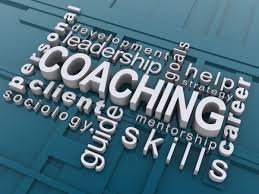
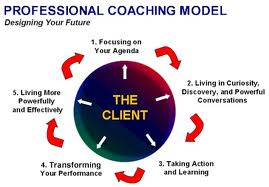


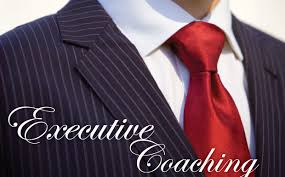
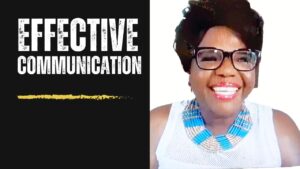


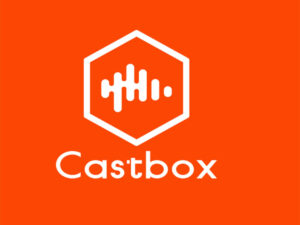


3 Responses